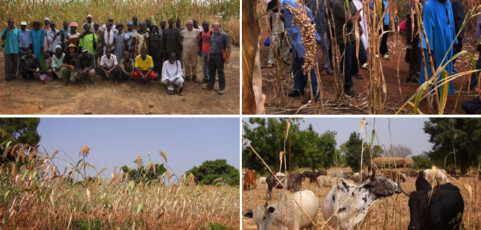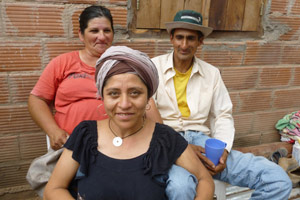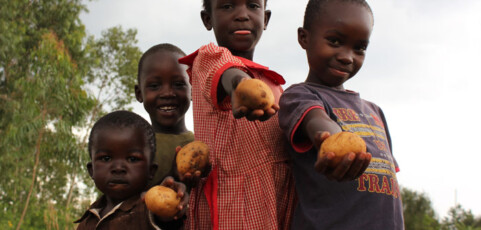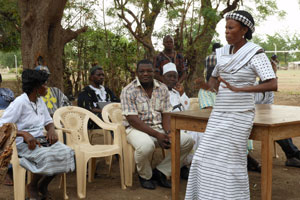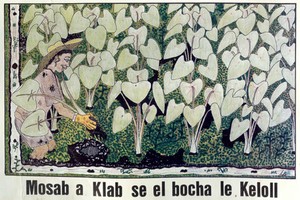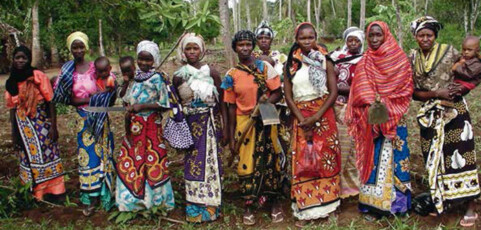A publication launched by the African Alliance for Food Sovereignty, showcasing the huge potential of Agroecology to feed Africa, fix broken food systems and repair damaged landscapes, providing abundant healthy and nutritious food sustainably while increasing incomes and improving climate resilience. The publication also illustrates 15 case studies.
How Yapuchiris build climate resilience
Dealing with the uncertainties of changing climates is a challenge faced by farmers around the world. Near Cochabamba in Bolivia’s Andean high plateau, a group of agroecological farmers are leading the way by developing and sharing innovative practices that help their communities break out of the vicious cycle of increased poverty and vulnerability. But challenges remain…
Youth and agriculture: It’s up to us
With a population of more than 28 million, Nepal is one of the poorest countries in Asia. But it is enormously rich in terms of biodiversity and natural resources, and agriculture plays a very important role in the country’s economy. It is also very rich in another way: young people make up 40 percent of the population. The problem is that young people don’t seem to be interested in agriculture.
From slash and burn to ‘slash and mulch’
In semi-arid cropping regions of West Africa, fallow periods are getting shorter. As land becomes more scarce, farmers are not able to give their soils enough time to rest. This is leading to depletion of soil organic matter, severely threatening soil fertility and damaging soil structure. In the worst cases, crops hardly yield anything anymore. But this is not an option for family farmers. In Burkina Faso, some have found ways to restore their soils that have been dubbed ‘slash and mulch’. The improvement and spread of these techniques also proves the importance of partnerships between farmers and researchers in developing locally suited practices.
From farmer-pastoralist conflicts to profitable alliances
The area around Wum in the Northwest Province of Cameroon is notorious as a conflict hotspot. As pressure increases on available land, conflicts occur more frequently between sedentary family farmers and pastoral communities. Farmer-pastoralist alliances are helping to resolve the conflicts by transforming the relationships between these families.
“We are a political and economic force”
About 23 years ago, in Santiago del Estero, a province in the north of Argentina, the Peasant Movement of Santiago del Estero Via Campesina (MOCASE -VC) was established. One of its leaders is Deo Sumaj, an impressive peasant woman of the Vilela indigenous people. “Peasant family farming could provide many answers to the crises that humanity faces.”
Farming for nutrition: – back to the future
Nutrition has become one of the buzz words of the year, like resilience, and landscapes. What they have in common is that they refer to complex situations with political forces competing over the backs of rural and urban communities. The nutrition challenge is clear – with a billion hungry people on this planet and another two billion overweight – it is time to act. Persistent hunger and undernutrition are inexcusable in a world of plenty. But the crucial question is: who should act and how?
Food fairs revive local food and nutrition
Food fairs are an important tool and space to promote food sovereignty as they take place in local public spaces and within people’s own socio-cultural settings. One excellent example was a food fair in Ghana, organised by the Centre for Indigenous Knowledge and Organisational Development (CIKOD). Women farmers exhibited traditional crops and foods, emphasising their importance for local and national food and nutrition security. The fair reminded community and political leaders of the value of neglected traditional foods. Some years later, it can be seen how this and subsequent food fairs helped to ensure the improved integration of traditional foods and agroecological farming into national food security plans.
The Mother of Our Breath
Women have been the nurturers of the family and providers of food on land, while men have been providers from the sea. Children are expected to help their parents and other elders in their different tasks. This is the story of the Paulauan traditional family farming system in the western most regions of the Caroline Islands in the Republic of Palau.
Finding a way out of the maize
Recurring drought and crop failure in many parts of the world have led to food and nutrition insecurity, and a dependence on food aid. But recently, some farmers in Kenya have been developing their own sustainable way to secure enough nutritious food along with extra income so that they can send their children to school. Traditional drought tolerant, nutritious crops such as cassava, sorghum and millet that were losing popularity due to a surge in maize production are again becoming commonplace, with reliable harvests improving diets and income.



